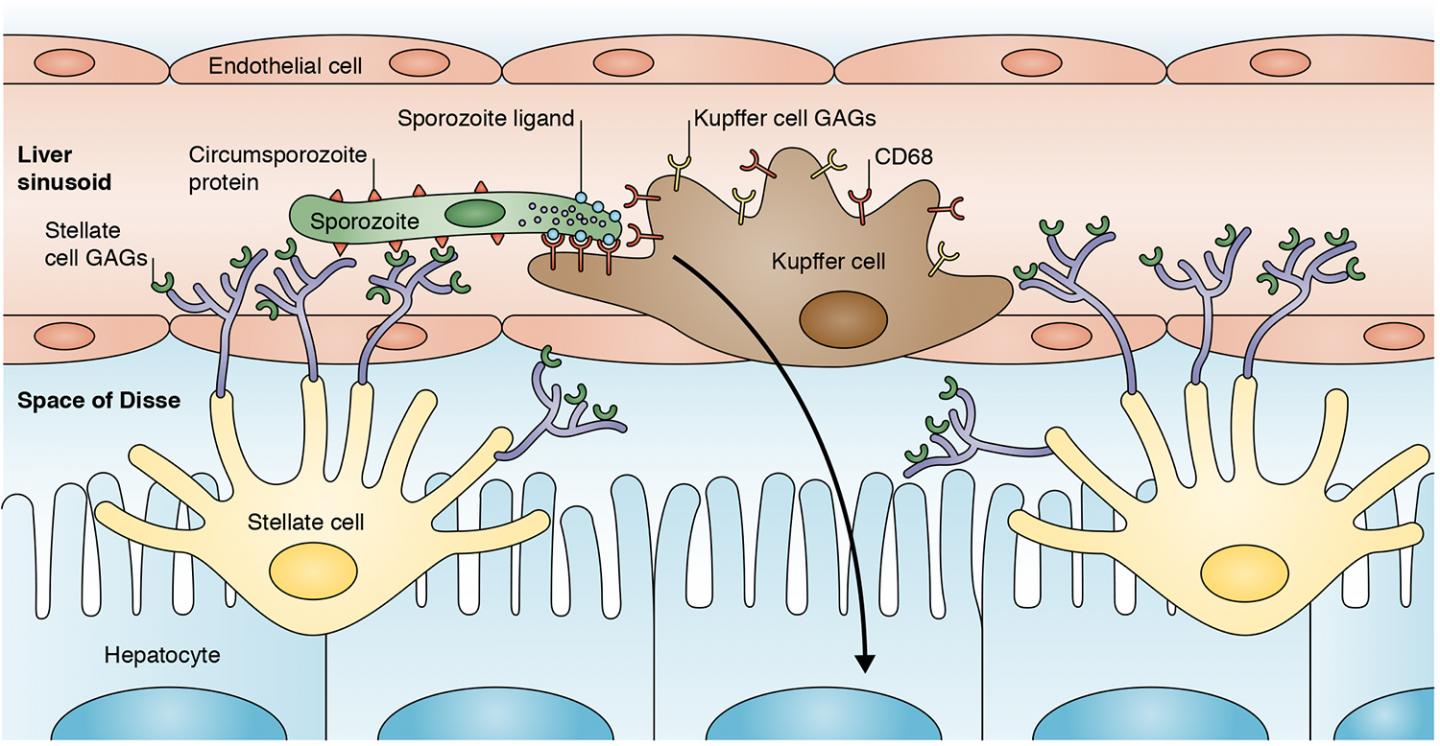
This illustration shows how the protein receptor CD68 acts as a gateway for a malaria parasite (sporozoite) to enter the liver through a Kupffer cell, as revealed by Cha et... Scientists uncover a port of liver entry for malaria parasites in a report published in The Journal of Experimental Medicine. If these results hold up in humans, drugs that target this entry protein might help prevent the spread of disease.
Malaria is caused by a parasite called Plasmodium falciparum, which is transmitted to humans via mosquito bite. Recent efforts to limit parasite transmission and increase treatment coverage has reduced the number of malaria-related deaths, but the parasite still causes roughly 200 million new infections and half a million deaths worldwide each year.
The first stop for malaria parasites in humans is the liver, where a few organisms multiply into tens of thousands, which are then released into the bloodstream. Passage through the liver is essential for the parasite to establish a productive infection and cause disease, and the bug's entry route has been traced to specialized liver cells called Kupffer cells. But exactly how the parasite traverses these cells is not clear.
A team of scientists at Johns Hopkins Bloomberg School of Public Health now find that a Kupffer cell protein called CD68 is needed for parasite passage and efficient liver infection, as mice lacking CD68 had 70% fewer parasites in their livers compared to intact animals. If this reduction is sufficient to substantially limit blood infections (and thus disease), CD68 may represent a potential new drug target in the fight against malaria.
Source: Rockefeller University Press
 Print Article
Print Article Mail to a Friend
Mail to a Friend
